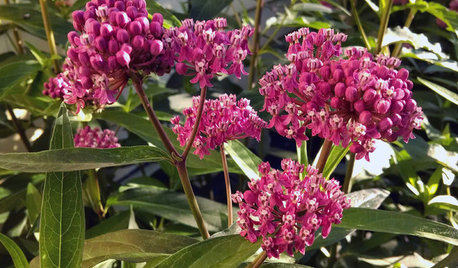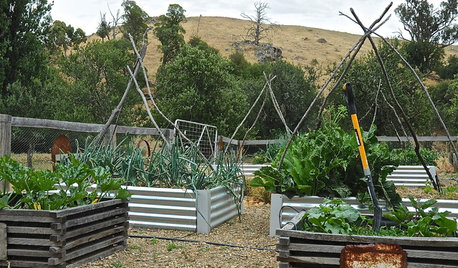Bad news on Round-Up
onederw
12 years ago
Related Stories

KITCHEN DESIGNSpecial Report: Kitchen News from Cologne
Blended Kitchen-Living Rooms, Super-Skinny Counters and Hidden Appliances Are Headed This Way
Full Story
Warm Up a Sunroom Year-Round
Turn your sunroom into a space you can enjoy through all four seasons
Full Story
GARDENING GUIDESOh, Deer! 10 Native Flowers That Stand Up to the Herds
Keeping a garden amid hungry deer can be hard, but these plants should fare well
Full Story
You Said It: Hot-Button Issues Fired Up the Comments This Week
Dust, window coverings, contemporary designs and more are inspiring lively conversations on Houzz
Full Story
FALL GARDENING7 Reasons Not to Clean Up Your Fall Garden
Before you pluck and rake, consider wildlife, the health of your plants and your own right to relax
Full Story
BEDROOMS5 Tips to Wake Up Faster and More Happily
Shine when you rise even if you're not a morning person with these strategies to banish the brain fuzz
Full Story
GREEN BUILDINGLet’s Clear Up Some Confusion About Solar Panels
Different panel types do different things. If you want solar energy for your home, get the basics here first
Full Story
DECORATING GUIDESSwitching Up a Colonial Home to Suit a Modern Family
Floor plan labels are thrown out the window as a designer helps a family shape rooms to fit the way they live
Full Story
FARM YOUR YARD9 Ways to Change Up Your Vegetable Garden for the Coming Season
Try something new for edible plantings that are more productive than ever
Full Story
GARDENING GUIDESEssential Watering Tips for Your Edible Garden
To give your edible plants just what they need, check out these guidelines for how, when and how much to water
Full StoryMore Discussions








tressa
hosenemesis
Related Professionals
Glen Ellyn Landscape Architects & Landscape Designers · Waunakee Landscape Architects & Landscape Designers · Edmond Landscape Contractors · Brookside Landscape Contractors · Fort Payne Landscape Contractors · Indianapolis Landscape Contractors · Oviedo Landscape Contractors · Thornton Landscape Contractors · West Coon Rapids Landscape Contractors · Cooper City Swimming Pool Builders · Sunny Isles Beach Swimming Pool Builders · Valinda Swimming Pool Builders · Rocky Point Swimming Pool Builders · Houston Window Contractors · Greatwood Window ContractorsMin3 South S.F. Bay CA
eloise_ca
peachymomo
applenut_gw
Min3 South S.F. Bay CA
hosenemesis
hosenemesis
Min3 South S.F. Bay CA
gin3
tressa
Min3 South S.F. Bay CA
tressa
wcgypsy
ggarner
aquilachrysaetos
dicot
calistoga_al ca 15 usda 9
Min3 South S.F. Bay CA
toyon
tressa
hoosierquilt USDA 10A Sunset 23 Vista CA
eloise_ca
tressa
fouquieria
fouquieria
eloise_ca
tressa